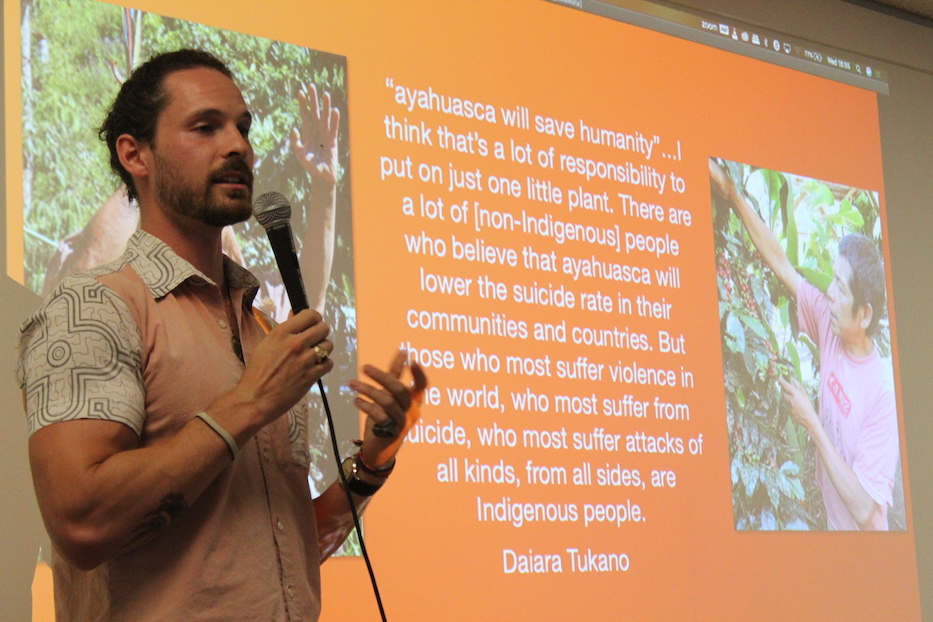
Arts & Culture | Westville | Film & Video
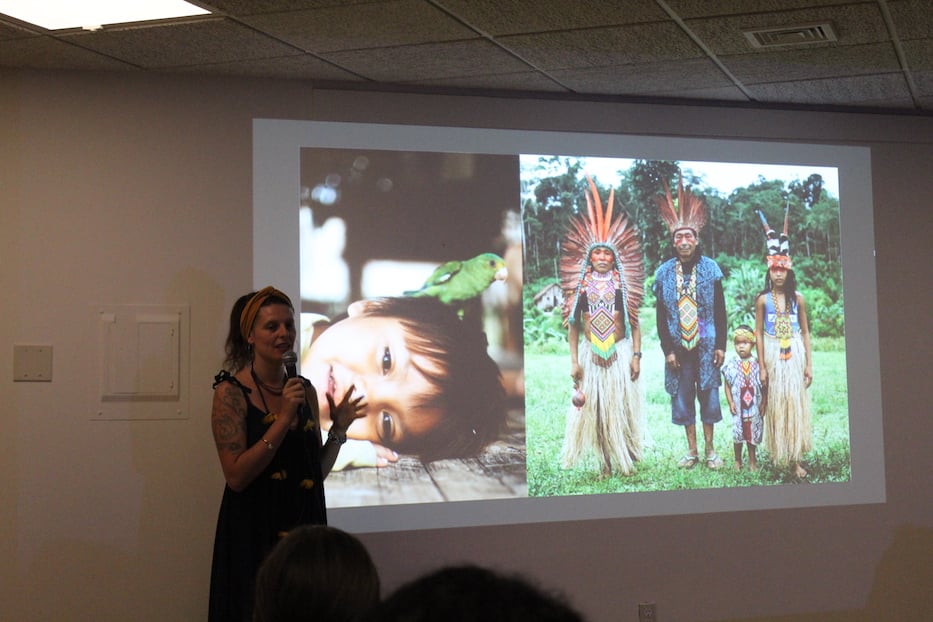
Jacowski speaking to the audience. Danielle Campbell Photos.
A young man stands next to the sacred Samaúma tree with his eyes closed, head tilted backwards. The sun, peeking out from an opening in the tall trees above, lands directly on his face. He is in deep meditation with the holy tree, his body aligned with nature and spirit.
On a recent Wednesday, that scene came to West Rock Wellness as Brazilian director Lara Jacowski brought her film, Eskawata Kayawai: The Spirit of Transformation to New Haven. In just over an hour, the documentary follows the Huni Kuin people of the Amazon, tracing their Indigenous customs and folkways. It begins 20 years after the Huni Kuin began reclaiming their culture by moving back into nature. A couple dozen people gathered for a screening and talkback with the director.
“They're like 15,000 people in a very medium-sized state for Brazil,” Jacowski said. “And they work mainly with spirituality and spiritual powers in nature. So, nature is the big, great, great teacher. And that's where they bring all their understanding, their knowledge, and their life throughout everything.”
The event was made possible by a collaboration between the Global Psychedelic Society, West Rock Wellness, Elm City Psychedelic Society, Bem-te-vi Produções, and the Indigenous Reciprocity Initiative. Outside of the screening room, Jacowski sold jewelry from the Huni Kuin people, who insert nature into every pattern they make.
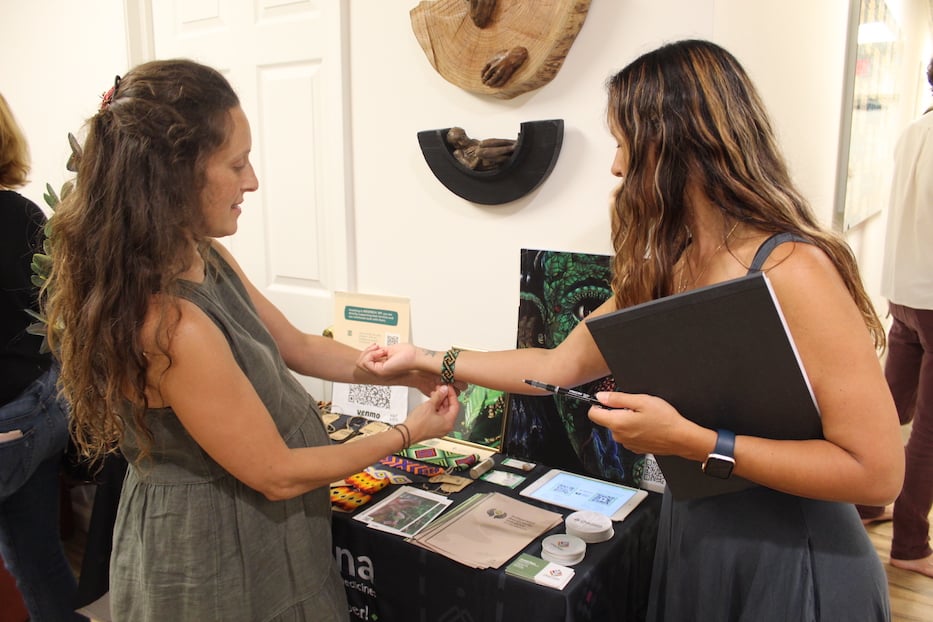
Inside the screening room, West Rock Wellness Co-Owner Jordan Sloshower greeted attendees, noting that the film came to the space through a common interest in psychedelic therapy. The integrative wellness and mental health center is community-based in Westville across from Bella’s Café on Whalley Avenue.
Within moments, the lights went down, and the screening began. Through Jacowski’s lens, the film walked the audience through the life of the Huni Kuni, who have successfully reacclimated to nature by moving from industrialization to the rainforest. Although they have lost many of their traditions, they still use the plant medicine Ayahuasca, which they call Nixi Pae or "strong vine."
The film chronicles how younger generations are trying to keep their culture alive by learning from elders—and will go to great lengths to do so. Living in nature, younger Huni Kuni people travel up a river, sometimes for days, to find elders they can learn from. As the years pass, there are fewer and fewer alive, making the teachings feel both urgent and time-sensitive.
For instance, the film follows one elder who remembered old customs, and wanted to pass them on before her death. It came, unfortunately, during the first years of the Covid-19 pandemic.
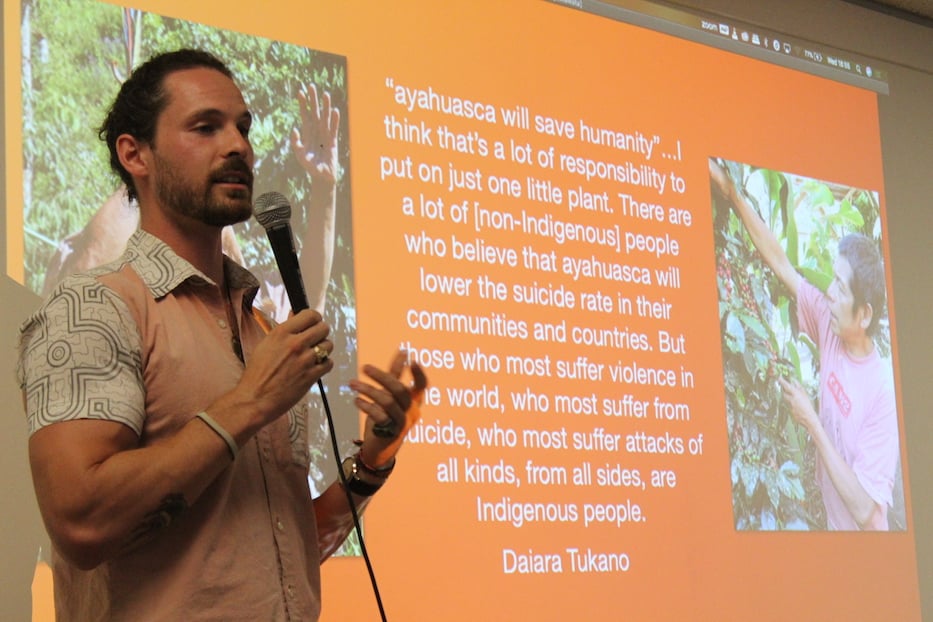
Moderator Joseph Mays.
After the film, both Jacowski and moderator Joseph Mays answered questions, speaking about their own experiences with Indigenous tribes and peoples. As they fielded questions from the audience, one woman asked about the tribe giving children Nixi Pae, even a drop on the finger as babies, to get them acclimated to the medicine.
Mays, who leads the Chacruna Indigenous Reciprocity Initiative, noted the importance of keeping Indigenous customs alive, even those that may seem foreign to outside eyes.
Both discussed how they had to create relationships slowly over time with the people they work with. Prior to finishing the film, Jacowsk said she spent six years “proving” to the Huni Kuin that she is a friend, because she is a white Brazilian woman.
She also spoke about how she learned to listen to them and respect their practices, including a tradition of men speaking up and women working in their homes and communities. It was a learning curve for her, she said—but she realized she had to respect their traditions.
The message resonated with many of the attendees. Guatemalan-born New Havener Caprice Taylor noted how colonialism has impacted her and others in New Haven, disconnecting them from who they are. She said she could identify with the journey of the Huni Kuin to return to their ancestral wisdom.
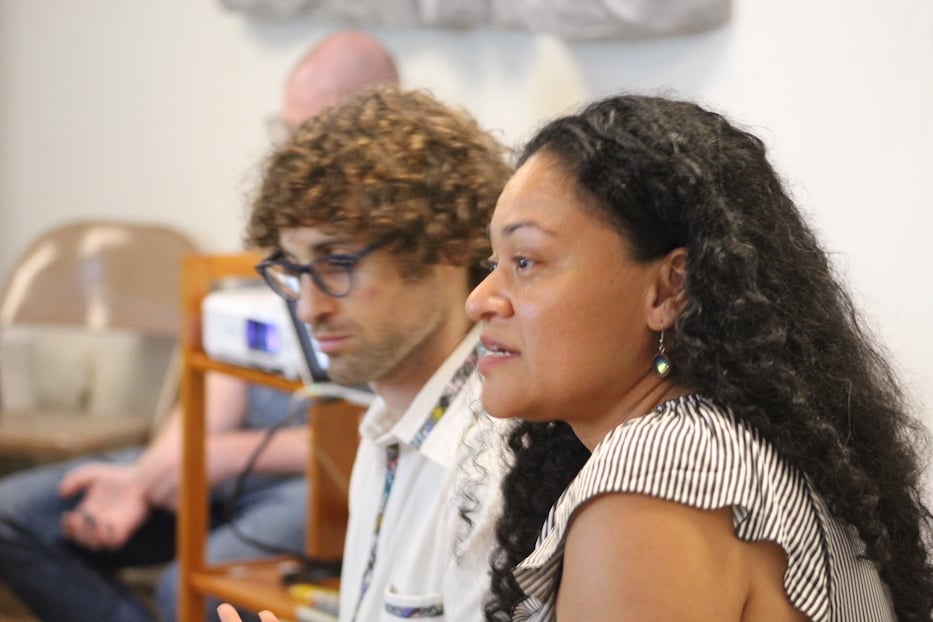
“How do we find our place in the world?” she said. “When we have felt that we hear in so many spaces that we don't belong? And you don't even have to hear the words … you can feel it. What they did was reclaim their space that they belong on this earth, and then they're willing to share that with those who hurt them.”
For Taylor, the film was a call to action to remember who she is, and that she belongs on this earth. She said she will better listen to her inner wisdom, and that community is most important to her.
Hely Rodriguez Cruz, a neuroscience researcher at Yale, is not new to psychedelics but was new to the Nixi Pae featured in the movie. He said he appreciated that the night included discussions around cultural appropriation and wanted to know more about the process of showing the community the documentary.
“We all are all people,” he said. “And that was one of the big emphases of the movie, is that we're human too. But that was something I think I felt a little more.”
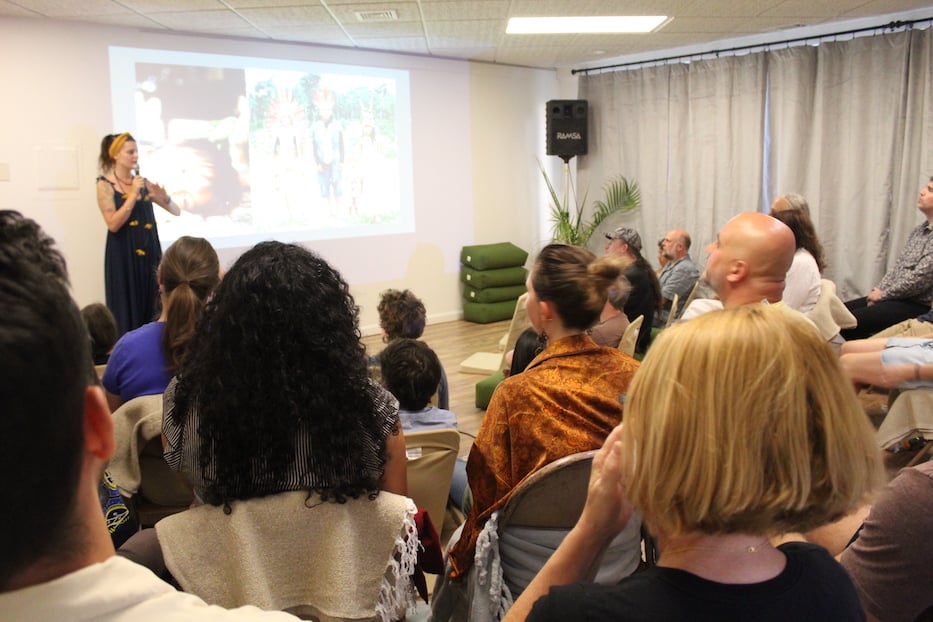
At the end of the documentary, the Huni Kuni celebrate with a festival inviting others from their tribe along the Humaitá River. They dance in formation in full regalia including feathers and face paint, which have various spiritual meanings.
Even the crew from the documentary celebrates with them. Some are also in traditional dress for the occasion. They sing and dance as they all line up one behind the other in merriment. A large group of birds flies overhead, and they all stop to enjoy the simply beautiful wonder.
”Only joy!” one man shouts. “Only Joy,” the group shouts back as the birds fly off into the distance. They seem to mirror the communal nature of their celebration.

